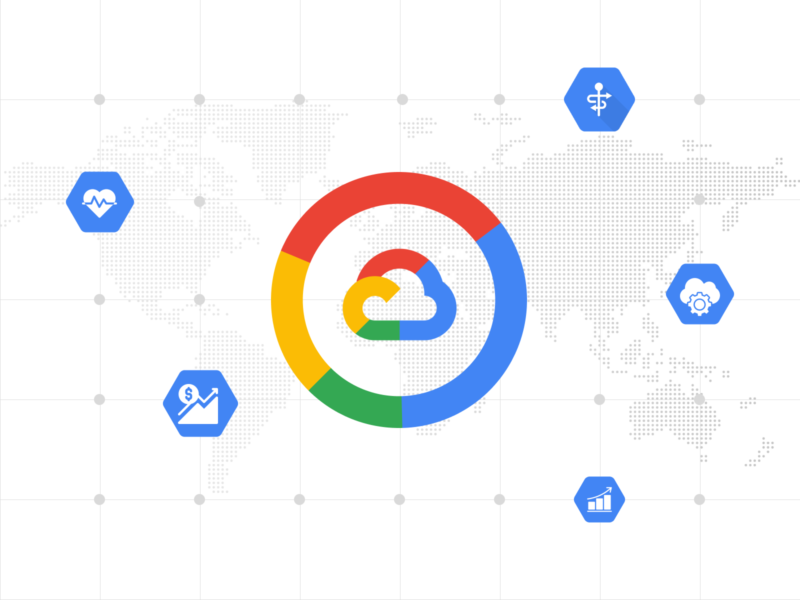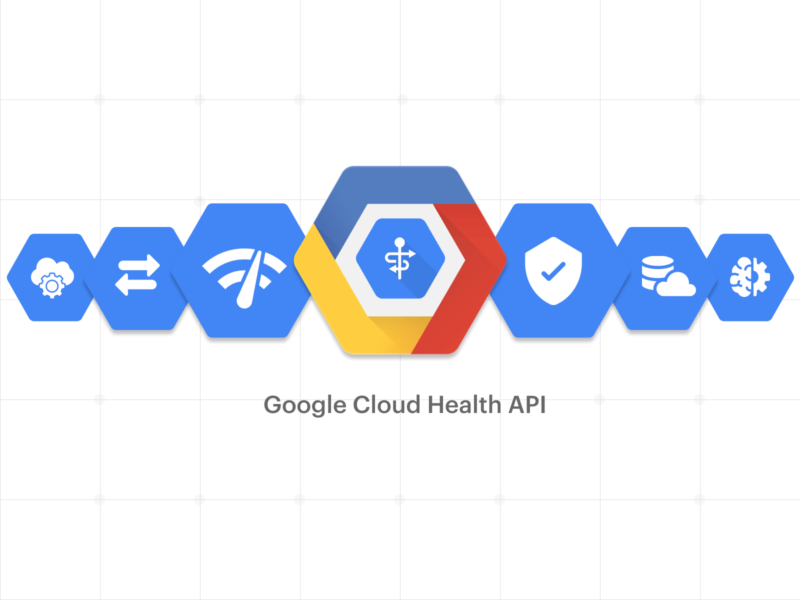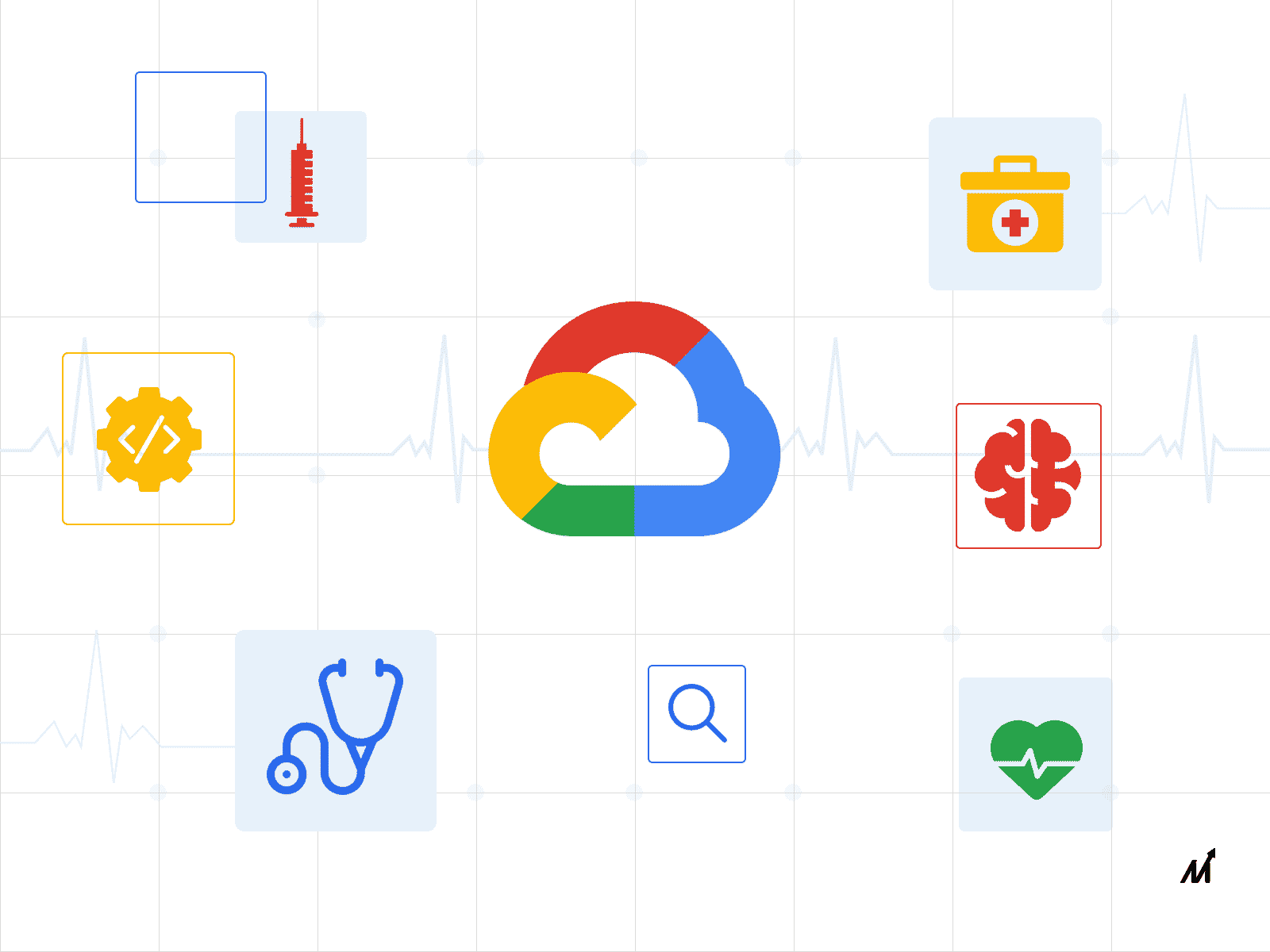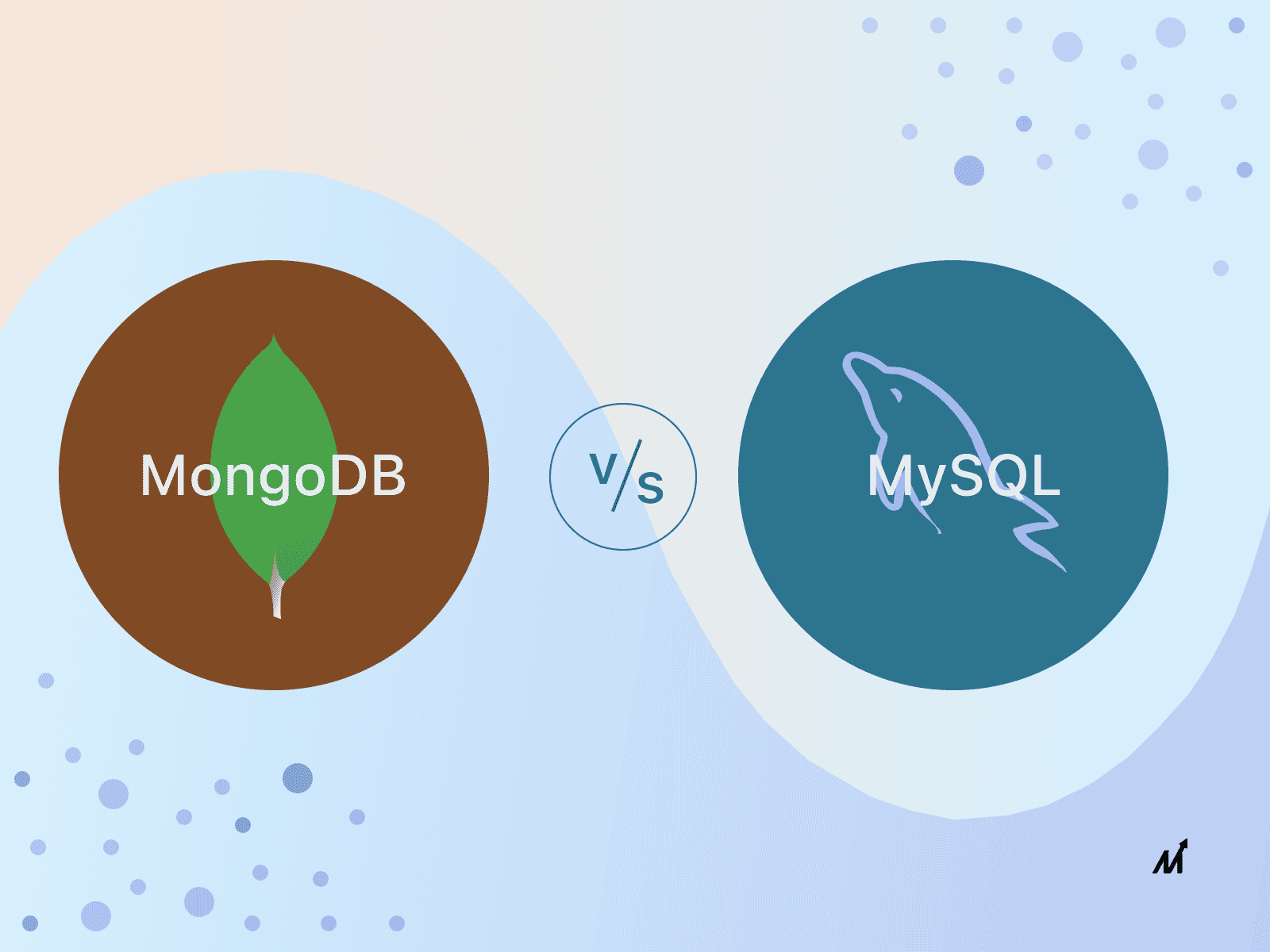Google Cloud Services – Introduction
It is no surprise that Google Cloud Services & Google Cloud Healthcare API has transformed our lives for the better in the past decade or so. In our professional as well as personal lives, we use its services extensively, be it Google Meets for setting up video conferences, Google Calendar for scheduling events, Google drive for saving photos and documents, and much more. Its facilities have resolved tons of issues that we used to face earlier.
Its name, fame, and game have been spread worldwide, and completing our tasks would be nearly impossible without Google’s efficiency as well as accuracy.
How does Google achieve so much and still maintain its top position in many different markets then?
The simple answer is Google Cloud Services
Google Cloud Services is a renowned name in the domain of cloud computing which offers heavy and expensive resources like intelligence, databases, networking, and servers over the Internet, making it accessible from any place in the world. When you are looking to set up an enterprise or expand a business, you need to consider a broad customer base, large-scale expansion, innovation, and maintenance. Thus the logistical and software demands exceed dramatically to cater to everyone’s needs.
As a business owner, if one manages to exploit Google Cloud Services cleverly, one can set up their ventures exceptionally successfully. It provides you with impeccable security, expensive servers, virtual machines, as well as continuous backups at a reasonable. Indeed, this leads to increased scalability, better collaboration, high flexibility, and performance.
Healthcare is an industry that has a growing demand for technology, and Google Cloud Services has become integral in helping them to achieve their goals, be it, for instance, maintaining databases for patient records or developing IoT devices to help them physically.
An Overview of how Cloud Computing is transforming the healthcare system
Cloud Computing in Healthcare has been adopted substantially due to its various benefits. It has helped this industry hugely, with millions of people involved and growing daily. The diseases are becoming more advanced, and so are the treatments. People have started to trust technology as well as its ability to manage data, databases, and servers to ensure a seamless process of treatment for patients, as the statistics below show:

1. The expected CAGR of the global healthcare cloud market is supposed to reach 2% by 2024
The compound annual growth rate globally for the cloud services provided in the healthcare industry is supposed to grow exponentially by around 2%. This shows the demand as well as the extensive utilization of the resources provided in cloud computing.
2. 92% of the healthcare providers currently and in the future see the value of cloud services
This staggering number implies how much this sector relies on high technology to fulfill its needs. They see the vast impact it has made; they see how the collaboration between the healthcare as well as the IT sector has made the process of treating patients much more fruitful, and they realize its potential!
3. The healthcare cloud computing market was valued at USD 33,390.56 million in 2021, and it is expected to reach USD 71,730.64 million by 2027
In the next five years, the trend for adopting cloud computing services in healthcare will increase, and its areas of research will expand also. The rapid and fast use of technology will help to develop more effective solutions for the patients and transform this industry altogether!
Further Read: How To Develop A HIPAA Compliant Mobile App: Complete Guide
Features of Google’s healthcare API: A subset of Google Cloud Services
1. Provides a robust and scalable solution to manage data of all types
Google Cloud Healthcare API is a breakthrough in having a transformative impact on the healthcare industry. This tool facilitates data exchange between healthcare applications as well as solutions built on Google Cloud and shows a unified view of the data.
2. It helps to increase security, privacy, and compliance while adhering to the industry protocols
Different standards and protocols exist when information is transferred between computers and networks regarding healthcare as it is susceptible. HL7® FHIR®, HL7® v2, and DICOM® are a few examples that work towards a faster and better approach to help achieve this target. These have specific APIs, also available in the Google Cloud Healthcare API, to include most of the available data.
3. Incorporates services like machine learning and data analysis
Obtaining constructive information from raw data and then using it further for intensive research is one of the primary goals the Google Cloud Healthcare API targets, as opposed to the older Google Cloud Genomics API. Its purpose is to unlock hidden insights with the help of cloud technologies and analytics and to improve further the quality of research that may lead to discoveries.
Seven ways in which the Google Cloud API is powering the Healthcare industry
If you’re looking for ways in which the Google Cloud API has influenced the healthcare industry, here are a few:

1. It adheres to industry-specific standards for health data by integrating three interfaces based on different models, which offer the ability to write, read, search as well as perform several operations on the collected data.
These are: Cloud Healthcare FHIR API (interchanging health data)
Cloud Healthcare HL7v2 API (integration of health systems)
Cloud Healthcare DICOM API (imaging-related and radiology areas)
2. Google Cloud Health API supports a huge amount of influx and outflux of data, which helps in making the transfer easier
3. It works with lightning speed, and petabytes of data can be processed within seconds, making converting data to information way more effortless.
4. Considering how important security is in this field, this API helps to detect threats and manage traffic quickly, in addition, to being backed by Google’s own identity and access system. This helps to keep the integrity of the data intact.
5. Acting as a bridge between healthcare data and the cloud, Google Cloud API works with all kinds of widely used formats for healthcare and data and also helps to use machine learning to analyze this dataset. This is further used for analysis by Google Cloud.
6. It is extremely durable (approx. 99.9%), as the data is stored in disks at multiple locations in different domains. This prevents almost any sort of data loss or delay in transmission.
7. The app is highly secure, robust, and protected when we use the Google Cloud Health API. It has helped to develop applications that do not only follow every single healthcare industry protocol but also connect data to advanced capabilities such as data processing, scalable analytics, and machine learning
A peek into the cost of Google Cloud Health API
There are various factors on which the pricing of the Google Cloud Health API depends, based on your requirements and needs:
- Data storage
- Request Volume
- Notification volume
- ETL operations
- De-identification operations
- Consent and privacy management
- Network utilization
This might differ from business to business, and the cost might fluctuate accordingly.
For instance: Suppose that an FHIR-based application hosted on Google Cloud in Europe-west2 produces 25,000,000 requests in a month with an average of 4 kB per resource. Five million requests are FHIR searches and are billed as Complex Requests. Over one month, the FHIR store persists an average of 1 TB of data, including backup and indexing overhead.
How can Markovate help?
The goal of Markovate is to provide cutting-edge solutions using high-tech technology tools to help businesses achieve their targets. They have solid experience and are one of the best Google Cloud Platform providers, offering a wide range of functionalities through Google Cloud Services. Migration to cloud platforms, assisting in-app maintenance, or building user-centric and enterprise-based software, Markovate has got you covered.
Cloud Computing is the future. The sooner it’s utilized fully, the sooner it can help to provide fast, secure, and scalable solutions with better outcomes and integration of multiple services all in one!
FAQs
1. How do rest APIs fit into interoperability?
Interoperability refers to the same delivery of web app services through APIs, irrespective of the platform used. Both the REST APIs and interoperability services are installed on the same server, which helps to increase the scalability when the limit is reached.
2. What is the use of the Google API key?
Generating Google API keys is essential for accessing the Google Cloud APIs and authenticating the requests associated with that particular project.
3. How does an API work?
An API acts as an interface between your app and others with functionality. It communicates between them through a set of rules and makes system calls to process a request to retrieve the necessary data.
4. What is the role of API in cloud computing?
APIs play an important role in cloud computing as they help to integrate the system’s development environment with the cloud infrastructure in a user-friendly manner.
5. Which is the most secure method to transmit an API key?
There are various methods to transmit an API key. Digital Signature is suitable for server-to-server two-way communication. On the other hand, OAuth is useful when you restrict parts of your API to authenticated users only.







